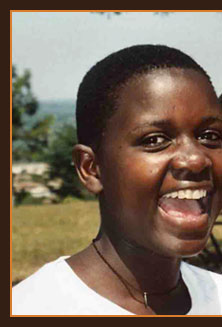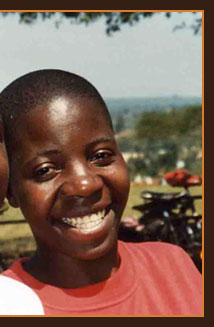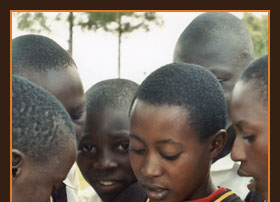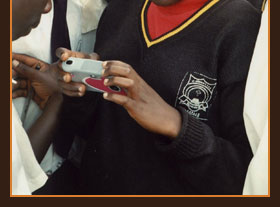The Project
ZoomUganda shares the journey of 12 girls given 12 cameras and 24 hours in which to tell their own stories through their own lenses. A Photovoice project directed by Julie Resnick of Portland, Oregon, ZoomUganda empowered its participants to stand in the centers of their world and show you the view from there.
See what these girls experience as significant, as sacred: chores before and after the two-hour walk to school and back each day, a favorite goat, elderly relatives standing in for dearly departed parents, those parents’ many graves. A bed. A dress. A friend.
As a complement to their photographs, the girls kept journals about what they hope their photos convey. Inevitably, these journals became the repository of the girls’ larger hopes and dreams:
And teach they did. In the 24 hours of their creative assignment, the girls not only learned to use the cameras themselves, but they also taught their friends, their siblings, and their extended families the photography fundamentals they had just learned. The photos reveal this generosity, as the girls themselves are present in the pictures of their world, by turns behind and in front of the camera. Imagine being given so great a gift as a camera and openhandedly sharing its possibilities with others.
ZoomUganda is sponsored by the Harambee Centre, a nonprofit organization based in Portland, Oregon, which connects people and groups in the US with the peoples and cultures of the African continent. Harambee Board member Thomas Lwebuga was raised in Matale, Uganda, site of ZoomUganda, a village in which every family he knows has been touched by the AIDS epidemic. Now living in Portland and working for Nike, Thomas remembers his village, his people, and Uganda through his work with the Centre and, specifically, the development projects he leads on behalf of St. Andrew’s Secondary School, including this collaboration with Julie Resnick on ZoomUganda.
|
|
But those futures are in peril. The roadblocks to the girls continuing their education are monumental, as females in Uganda are far less likely than boys to receive the sponsorship they need to support their studies. Add to that the ways that AIDS has ravaged African communities: these orphaned girls live with those family members who still survive, often elderly relatives who themselves struggle with sickness and poverty. The girls are forced to move when the resources of one household run out. And wherever they are, they work: caring for siblings, preparing food, fetching water, nursing the elderly. Some of them will be assaulted on their long walks to and from school. All of them will face enormous challenges to continuing their education and achieving their visions for who they can become.
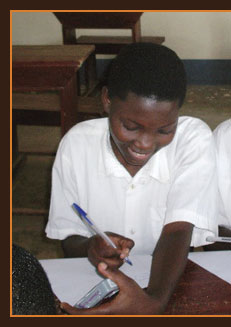 |
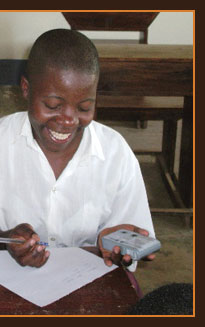 |
Giving girls a real opportunity for further education represents not only an acknowledgment of their fundamental human rights, it also is the single most effective step a family, village, and country can take to build communities, improve health conditions, and foster economic growth. Educating girls quite literally changes our world.
ZoomUganda intends to do just that. By putting the girls behind the camera, the project opens a window onto a reality it’s far too easy to see through only an outsider’s lens, if indeed we see it at all.
![]()

